An eerie discovery was made during a recent survey of the Pyramid of the Moon, which is in the ancient city of Teotihuacan, northeast of Mexico City. Archaeologists say they found a hidden tunnel that leads to a 50-foot chamber deep within the structure.
And the archaeologists believe the mysterious space was once used for rituals of the dead — with the tunnels serving as a “passage to the underworld.”
It’s believed that the Pyramid of the Moon was constructed between 200 and 250 AD.
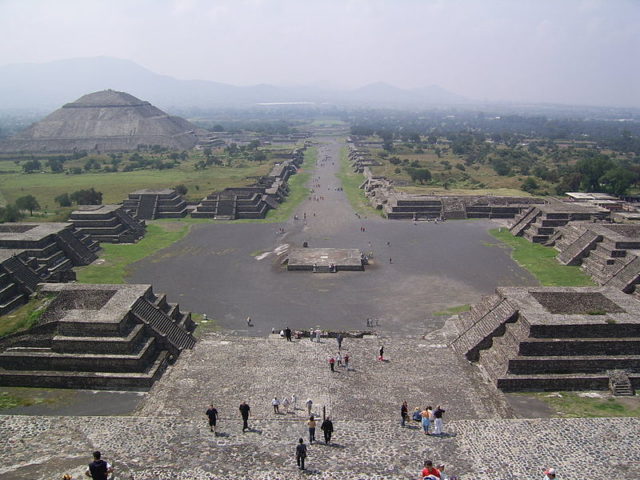
Researchers from Mexico’s National Institute of Anthropology and History (INAH) and the Institute of Geophysics at the National Autonomous University of Mexico (UNAM) located the hidden spaces.
“These large offering complexes are the sacred core of the city of Teotihuacán, so all people considered it the mecca of civilization, hence what can be found inside can help unravel the relationships that had this ancient metropolis with other regions of Mesoamerica,” said Dr. Verónica Ortega, director of the Integral Conservation Project of the Plaza de la Luna.
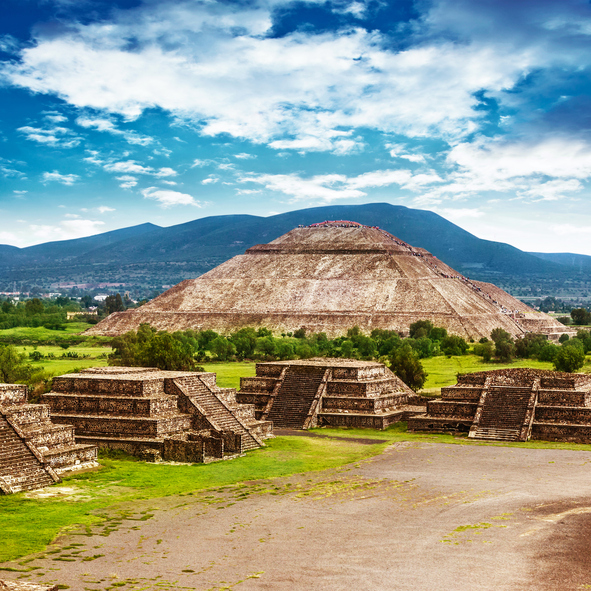
Scientists will conduct careful searches — and if human remains are found, more answers may be learned. Dr. Ortega said that the investigation is focused on a ritual space linked to the “underworld,” explaining, “Previous explorations found skeletons of individuals with cranial deformation, as in the Mayan area, and diverse greenstone objects (necklaces, anthropomorphic figures made with mosaics), so it is not difficult to think that something similar could be found in the subsoil.”
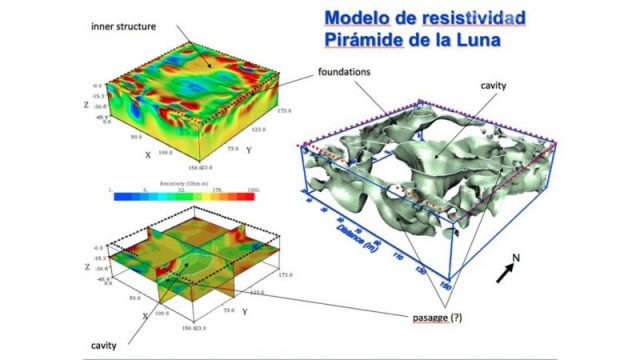
In the summer of 2017, this group used an electrical resistivity technique to allow them to gauge the geologic properties of the earth, all without breaking any ground. The early results hinted that the pyramid might contain a secret passage.
They also believe they have located the entrance to the tunnel.
This is the second largest pyramid in the area, with the Pyramid of the Sun getting more attention up to now. “Both pyramids obviously played a deeply important role in this society, most likely a sacred space for ritual and sacrifices,” according to IFL Science.
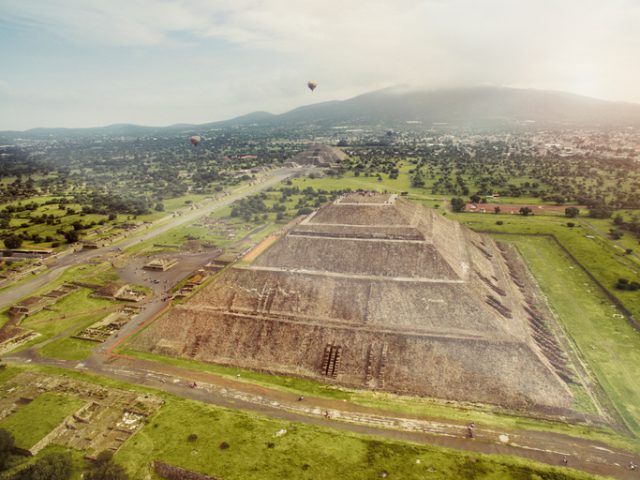
Between 1998 and 2004, archaeologists discovered the remains of nearly 200 animals, such as pumas and wolves, in tunnels beneath the pyramids. Who knows what they’ll find in these tunnels and chamber.
Twelve small pyramid platforms surround the Plaza of the Moon, which are believed to have been constructed to allow thousands of people to witness sacrificial rituals.
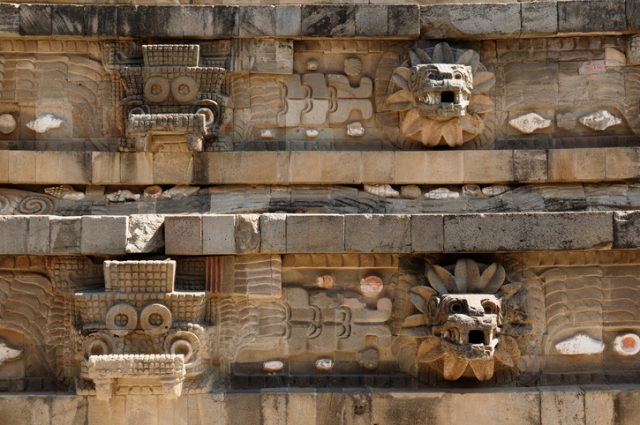
The earliest human sacrifice appears to be around 200 AD, researchers believe. Tombs in the pyramid contain both animal and human remains as well as grave objects made of obsidian and greenstone.
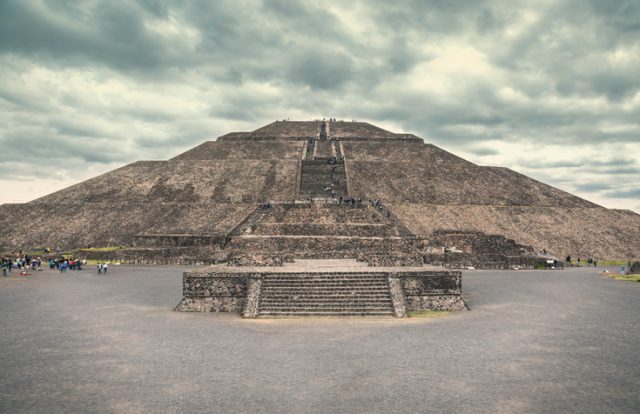
A tomb marking the fourth construction stage held a single male whom the researchers believe was buried alive — he was wounded with his hands tied behind his back. Among the jaguar and wolf remains were gems, all dedicated to The Great Goddess, the ruler of water, earth, fertility, and creation.
Along the southern part of the Avenue of the Dead lies the Ciudadela (“Citadel”), a large square courtyard covering 38 acres. Within the Citadel stands the Temple of Quetzalcoat (the Feathered Serpent) in the form of a truncated pyramid. Sticking out from its walls are numerous stone heads of the deity.
The temple walls were once painted in hematite red. Excavations of the Citadel were first carried out between 1917 and 1920. Individual burial sites were found around the temple in 1925, and in the early 1980s archaeologists discovered the remains of 18 men, probably soldiers who had been ritually sacrificed.
Read another story from us: The Legendary Chief Who Almost Unified All Native Americans
Scientific dating methods indicated that the graves were prepared about 200 AD. Further work revealed over 130 skeletons of both sexes in mass graves along the edges of the temple, as well as beneath it.
